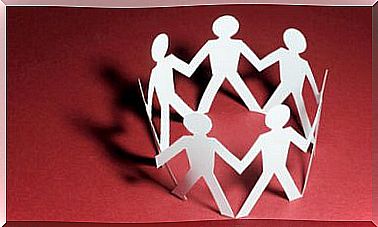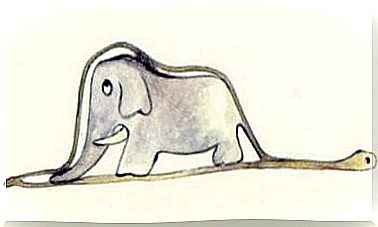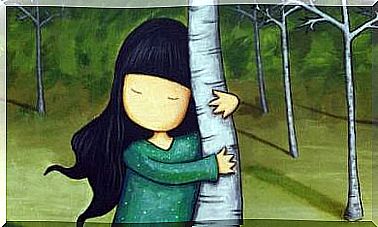The Anger Phase Of Grieving: What Does It Feel Like?

Anger is a common stage of grief. Unfortunately, it is a phase that many people get stuck in. They break down emotionally and cannot overcome this anger phase. It is not easy to deal with those feelings where anger and the inability to accept what has happened alter your personality and limit you.
Shakespeare said that crying can make the pain less intense, but what if you can’t reach that stage of emotional release? You could eventually turn into a stone, sinking deeper and deeper into the pit of your grief. So of all the stages of grief defined by Elisabeth Kübler-Ross, anger and frustration can be the most difficult.
This is the stage where it really dawns on you that you will never see that person again. Instead of accepting it, you resist it. You are trying to find someone or something to blame. You struggle with a constant sense of injustice, resentment and anger. These emotions continue to build up in your mind and body.
All those intense emotions turn into a kind of raging tornado, destroying everything in its path. You want to be in control of your life, but you don’t feel like you can. This is because your anger has turned into anger, and it can turn you into something you are not.

The Anger Phase of Grieving
The anger phase of grief is, in fact, a forceful rejection of the idea of loss. Let’s not forget that sadness, like anger, is an instinctive response that has helped people survive because our brains see it as a threat.
What is more impactful than losing someone important to you? So that pain is immense, and your brain reacts to it. It’s completely normal to feel these kinds of things. At the same time, certain studies, such as
that of Dr. George A. Bonnano of Columbia University, that there is no “normal” form of grief. In other words, although Dr. Kübler-Ross has accurately described the stages, everyone experiences them differently and in a different order.
There are also particularly complex forms of grief, such as frozen and delayed grief. In either case, you carry your grief for years without resolving it. This almost always leads to depression. However, let’s go back to our topic for today: the anger phase of grief.
An obsession with what happened and unanswered questions
When you lose someone, it’s normal to ask yourself a lot of questions. One of the most common questions may seem more like self-pity, but it’s also full of anger.
It’s when you ask yourself why this exactly happened to that person. “Why did this have to happen to my father? He was so young! He was so kind and loved life so much. Why did he have to leave so early?”
These kinds of thoughts eventually become fixed points of obsession in your mind, if you are stuck in this stage of grieving. Your obsession with what happened and trying to find explanations or something to blame is a common part of the anger feedback cycle during the grieving process.
Hypersensitivity
The anger phase of grief also tends to involve extreme hypersensitivity. Suddenly every unexpected stimulus, every news, every event that comes out of nowhere makes a deep impression on you. You then build it up (negatively) in your mind and let it destroy you.
Changes in your personality and temperament
Something you need to understand about anger and rage is that they can really change you. They can make you become someone you’re not, someone you don’t like, or someone you don’t want to be.
You may start to lose motivation. Things you used to be passionate about are no longer interesting. Your patience and your curiosity evaporate. You no longer connect with other people. Perhaps the worst part is that your empathy disappears, because through the suffering you are only focused on yourself.

Apathy, physical pain and mild depression
The anger phase of grief can also lead to certain psychosomatic problems. For example, you may experience symptoms such as abdominal pain, physical and mental fatigue, but also headaches, insomnia, or a higher risk of developing infections. You may also begin to experience mild symptoms of depression, which can worsen if left untreated.
How do you get over the anger phase of grief?
One of the greatest dangers of the anger associated with this stage of grief is that it can lead to potentially harmful behavior. Some people may start drinking, gambling, or anything else that will help them “forget” the pain of their loss.
So when it comes to treating and overcoming this phase, therapy isn’t just a good idea, it’s probably the only effective way to take back control of your life and get things back on track. Below we will explain a few strategies that you can use.
Strategies to overcome this phase
- An assessment of your health. Before starting therapy, a patient should have a medical check-up to make sure he or she has no other conditions.
- If you are going to take a therapy, you also have to commit yourself fully to follow it.
- A good technique is cognitive restructuring. You use it to identify your limiting and irrational thoughts. That makes it easier for you to channel your emotions, find some relief, and find resources to ease your deep emotional pain.

It is also worth noting that there are many variations in this type of therapy, depending on your needs. Don’t expect quick results either. This is a long process that requires a strong commitment between patient and therapist.
Don’t worry, therapy success rates are very high. It is certainly possible to overcome this stage of grief. Books like Letting Go With Love: The Grieving Process by Nancy O’Connor can also be of great help to anyone struggling with the anger phase of grief.








